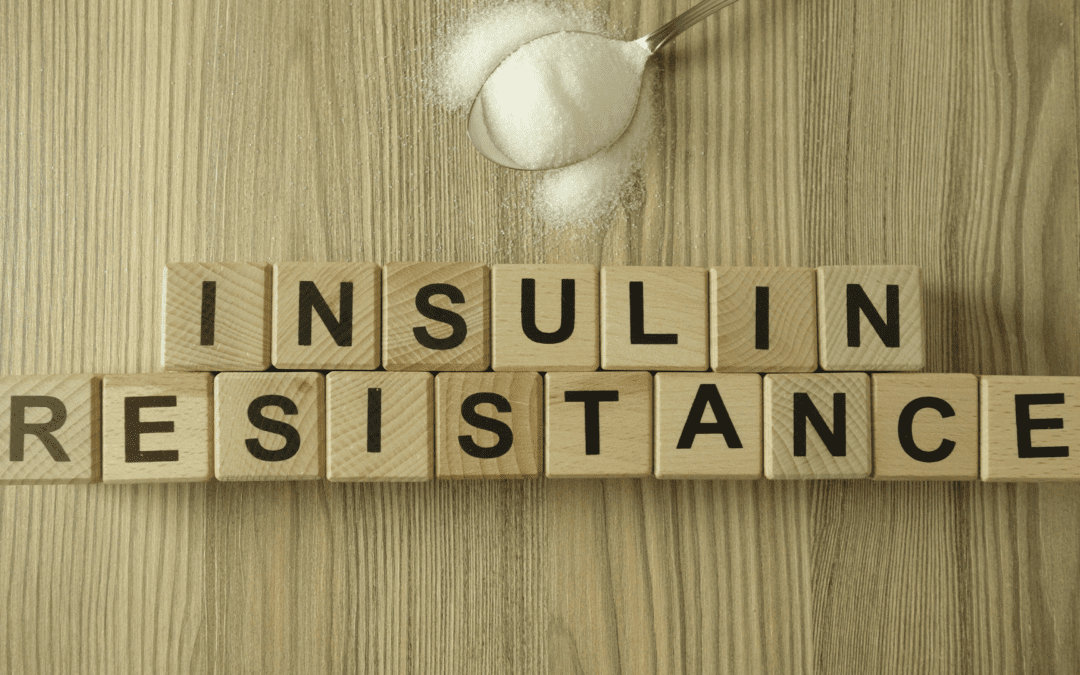For the longest time, I was under the impression that worries about insulin were reserved exclusively for those diagnosed with diabetes. That belief held strong until my experience after my daughter’s birth drastically changed my outlook. Today, I want to share my story, the impact of insulin on our health, especially for women over 30 navigating the phases of perimenopause and menopause, and importantly, how it’s all manageable. Let’s dive in.
What is insulin?
Insulin is a hormone that plays a crucial role in managing your body’s metabolism. It is produced by the pancreas, specifically by the beta cells of the pancreatic islets. The primary function of insulin is to regulate the level of glucose (sugar) in the bloodstream. It helps keep blood glucose levels within a normal range by signaling cells to take in glucose from the blood. This process lowers the blood glucose level and provides cells with the glucose they need for energy.
Here’s a breakdown of its key roles:
- Glucose Regulation: When you eat, carbohydrates in food are broken down into glucose, which enters the bloodstream. This increase in blood glucose levels triggers the pancreas to release insulin. Insulin then facilitates the uptake of glucose by the body’s cells to be used as energy or stored for future use.
- Energy Storage: Insulin not only helps cells absorb glucose but also plays a role in storing it for future energy needs. In the liver and muscle cells, it promotes the conversion of glucose into glycogen, a storage form of glucose. When blood glucose levels are low, glycogen can be converted back into glucose.
- Fat Storage and Utilization: Insulin also affects fat metabolism. It promotes the synthesis of fats from glucose and inhibits the breakdown of stored fat. Essentially, when insulin levels are high, the body tends to store fat rather than use it for energy.
Insulin and diabetes
In individuals with diabetes, the body’s ability to produce or respond to insulin is impaired, leading to elevated levels of blood glucose. Type 1 diabetes is characterized by the body’s inability to produce insulin due to the autoimmune destruction of the insulin-producing beta cells in the pancreas. Type 2 diabetes, on the other hand, is marked by the body’s resistance to insulin and often a gradual decrease in insulin production over time. Managing blood glucose levels in diabetes often requires the administration of insulin (for Type 1 diabetes and some cases of Type 2), dietary adjustments, and lifestyle changes to ensure blood sugar levels remain within a healthy range.
Why get insulin checked if you’re over 30?
- Early Detection of Diabetes: Both Type 1 and Type 2 diabetes involve insulin imbalances. While Type 1 diabetes is less common and generally diagnosed earlier in life, Type 2 diabetes risk increases with age. Early detection through insulin and blood glucose testing can lead to better management and prevention of complications.
- Identifying Prediabetes: Prediabetes, where blood sugar levels are higher than normal but not high enough to be classified as diabetes, often shows no symptoms. Checking insulin levels can help identify prediabetes, which can then be managed through lifestyle changes to prevent progression to Type 2 diabetes.
- Monitoring Insulin Resistance: Insulin resistance increases with age and is a precursor to Type 2 diabetes. It occurs when cells in muscles, fat, and the liver start resisting or ignoring the signal that insulin sends out to grab glucose from the bloodstream. Early detection of insulin resistance can be crucial in implementing dietary and lifestyle interventions to reduce its impact.
- Weight Management: High levels of insulin can make weight management more challenging since insulin promotes the storage of fat. Understanding one’s insulin sensitivity can assist in tailoring diet and exercise plans to manage or lose weight effectively.
- Heart Health: There’s a link between insulin resistance and an increased risk of cardiovascular disease. Insulin resistance can lead to higher levels of glucose and fats in the blood, raising the risk for heart conditions.
- Polycystic Ovary Syndrome (PCOS): For women, checking insulin can be important if symptoms of PCOS are present. PCOS is often associated with insulin resistance and can impact menstrual cycles, fertility, and increase the risk of diabetes.
- Comprehensive Health Check-up: After the age of 30, it’s a good practice to undergo regular comprehensive health check-ups, including screening for potential metabolic syndromes which involve insulin resistance.
Are you at risk for insulin resistance?
Factors contributing to insulin resistance:
- Obesity: Particularly excess fat in the abdominal area.
- Sedentary Lifestyle: Lack of physical activity can worsen insulin resistance.
- Diet: A diet high in sugars, refined carbohydrates, and processed foods can increase the risk.
- Age: The risk increases as you get older.
- Sleep Issues: Poor sleep or sleep disorders can contribute to the development of insulin resistance.
- Genetics: There may be a genetic predisposition to insulin resistance.
How to combat insulin resistance
Managing and reducing insulin resistance involves lifestyle changes such as adopting a healthy diet rich in fiber and low in refined sugars, increasing physical activity, losing weight, especially around the waist, and getting adequate sleep. Medications may also be prescribed by healthcare professionals to help manage blood sugar levels. Early detection and management of insulin resistance can significantly reduce the risk of Type 2 diabetes and other associated health conditions.
My personal journey
Shortly after having my daughter, when my milk supply started to decline, a lactation consultant recommended snacking on peanut butter and crackers throughout the day. Needless to say, I followed those instructions with a bit of too much enthusiasm but without the necessary physical activity. The truth hit hard when I realized the glucose from my hearty snacking was being stored as fat around my midsection due to low activity levels.
Back then, little did I know, I was ticking off all the boxes for insulin resistance symptoms without realizing it.
Symptoms of insulin resistance I experienced:
- Weight-loss resistance
- Constant hunger
- Feeling exhausted all the time
- Brain fog
- Trouble sleeping
- Increased belly fat
- Tingling sensations in my hands and feet
Where to start measuring insulin
The best initial step in understanding your insulin levels is to look at your A1C, which provides an average blood sugar level over the past three months. Additionally, reviewing your fasting glucose and fasting insulin levels can offer more insight into your current state. In the realm of functional medicine, signs of insulin resistance start to show once your HbA1C exceeds 5.2. This was a critical piece of knowledge I wish I had understood sooner.
I healed! You can, too
Insulin resistance is entirely reversible through proper nutrition, supporting any deficiencies with supplements, and making lifestyle adjustments. For many, knowing where to start is the biggest hurdle. That’s why I developed “Daily Essentials for Hormone Balance,” a comprehensive guide designed to help you create a daily strategy focused on reducing inflammation, regaining insulin sensitivity, and balancing blood sugar.
Don’t forget to explore more of my blog posts and reach out if you have any questions.
The information provided in this blog post is for informational purposes only. The information is a result of years of practice and experience by Dr. Francesca LeBlanc. However, this information is NOT intended as a substitute for the advice provided by your physician. Do not use the information provided in this post for diagnosing or treating a health problem or disease, or prescribing medication or other treatment. Always speak with your physician or other healthcare professional before taking any medication or nutritional, herbal or homeopathic supplement, or using any treatment for a health problem. Please, do not disregard professional medical advice or delay in seeking professional advice because of something you have read on this website.


Recent Comments